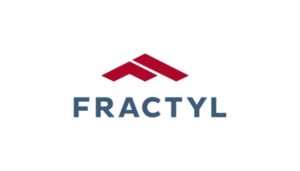 Fractyl Health CEO Harith Rajagopalan envisions a scenario in which those with type 2 diabetes don’t have to rely on insulin injections.
Fractyl Health CEO Harith Rajagopalan envisions a scenario in which those with type 2 diabetes don’t have to rely on insulin injections.
Insulin has long been a staple of treatment for type 2 diabetes patients who need to manage their blood sugar levels, but Rajagopalan’s aim is to go beyond that temporary fix.
Trained as a cardiologist, Rajagopalan cared for patients with cardiovascular disease and coexisting type 2 diabetes. While serving as a cardiology fellow at Brigham & Women’s Hospital in Boston, his dad and uncle were diagnosed with type 2 diabetes. That put the wheels in motion for Lexington, Mass.-based Fractyl Health and its Revita DMR procedure.
“I started to think really hard about that disease and really began to realize that a lot of the therapies that we’re applying in type 2 diabetes are symptomatically focused on the blood sugar but not focused on treating the underlying disease at all,” Rajagopalan told Drug Delivery Business News.
Thinking about the role of the duodenum in the insulin resistance that causes type 2 diabetes led Rajagopalan to start Fractyl about 10 years ago. The company has developed a therapy to change the trajectory of the disease rather than putting a Band-Aid on its symptoms, as the CEO puts it. That therapy, Revita DMR, is designed with the ultimate goal of creating a way to allow the pancreas to regulate blood sugar better on its own.
An outpatient endoscopic procedure, Revita DMR works to resurface the upper intestine lining (duodenal mucosa) in metabolic disease for patients with insulin-treated type 2 diabetes. A gastroenterologist performs the procedure with the aid of an endoscope. Fractyl’s catheter runs through the mouth and past the stomach, into the duodenum alongside the endoscopic camera, while the gastroenterologist uses a bedside system with an interface that Rajagopalan likens to an iPad to activate the catheter to deliver a precise amount of heat energy to the lining of the duodenum, causing the targeted destruction of overgrown cells that line it.
The procedure takes approximately one hour, requires a stay in a recovery room for 90 minutes or so and then allows the patient to return to normal life the next day.
“This is less involved than going in for a colonoscopy and the safety profile has been very reassuring so far,” Rajagopalan said.
“Throwing more insulin at the problem puts people at risk of weight gain and blood sugar dropping too low and there’s a lot of effort involved in managing the injection of insulin,” he added. “Often, that’s really burdensome for people. Revita is designed to be for patients who are not achieving good glucose control on insulin and for whom the burden and risks of more insulin are unattractive or undoable.”
The platform has CE mark approval in Europe and last month garnered FDA breakthrough device designation in the U.S., with Fractyl now enrolling patients in the Revita-T2Di study that will evaluate the procedure.
The company also confirmed that CMS approved coverage of routine costs for Medicare patients in the Revita-T2Di trial, with all eligible participants set to receive study-related health assessments at no cost. The decision allows for reimbursement coverage to clinical research centers for certain trial-related expenses.
“Having breakthrough device designation is a really great sign of how we’ve been able to work with the FDA to try to find a patient population where we could offer a real potential benefit and a reasonable expectation that the trial we’re conducting could be better than the standard of care for these patients,” Rajagopalan said. “That’s really what breakthrough therapy designation is about and we’re really pleased that we were able to obtain that designation.”
Rajagopalan said Fractyl’s focus now is on the Revita-T2Di study, for which the company is currently training physicians while working to get the trial up and running across 30 sites in the U.S., as well as at a handful of locations in Europe, too.
Fractyl aims to complete enrollment and have primary endpoint data in 2023, with interim data expected in about a year from the first phase of the study. With European approval secured, Fractyl plans to seek out insurance reimbursement in different European geographies before commercializing, while approval and launch in the U.S. are expected after the 2023 data readout.
“What we really want to offer is a therapy that can reverse insulin resistance so that we can improve blood sugar control as we reduce or eliminate the need for insulin,” Rajagopalan said.

